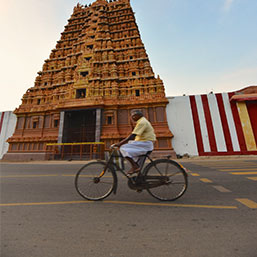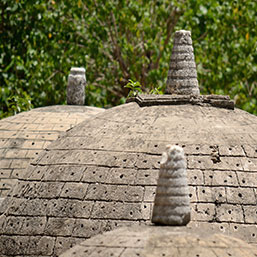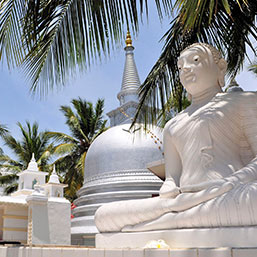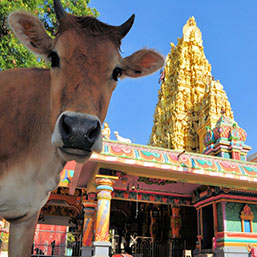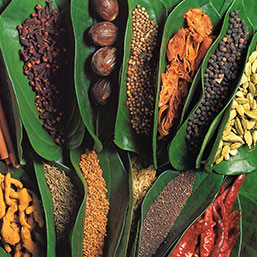We’ve seen so many of the world’s wonders. And yet we can’t help feeling a special thrill of excitement about Jaffna and the North of Sri Lanka. Jaffna was completely off limits until 2009 when Sri Lanka’s tragic civil war finally ended. It has only very recently been fully opened up and tourists remain few and far between. And that’s what helps make it special.
Emerging at last from 20 years of isolation, Jaffna is an absorbing concoction of colonial charm and vibrant Tamil culture, while the Jaffna Peninsula – connected to the rest of Sri Lanka by a narrow strip of road at Elephant Pass – and surrounding islands offer remote temples, beaches and more offbeat attractions.
Visiting Jaffna is a captivating experience. Once the economic capital of the north, today it is more like a sleepy provincial town that is reawakening to its vast potential. The people are charming and innocently keen to show off their city. There are more bicycles than cars on the roads. And amongst the few vehicles you do see, Morris Minors are still in action.
To use a hackneyed phrase, time really has stood still; it feels like a great privilege to visit a magnificent city as it finds its feet again. Street traders smile, sari-clad women go about their business, often balancing impossible loads on their heads, and young children dance through the streets without a care in the world. Despite the past conflict, there is a blissful calm that pervades everything and immediately puts the intrepid traveller at ease.
The countryside and lagoons are spectacular. You’ll find subsistence farmers and fishermen working hard in the blazing sun. Fields produce bountiful vegetables and grains whilst the shallow salty waters yield amazing shellfish. There are plenty of exciting places to visit, from the fort to the library and from Nallur temple to the island of Delph. The sites are largely deserted and, although they may bear the scars of conflict, they remain amazingly beautiful.
Culturally, Jaffna and the north is a different world to the Sinhalese dominated south. Closer to southern India than to Colombo, the region was settled early on by Tamil migrants from southern India and has retained a unique character and culture, owing much to Hindu India.
You’ll find many ornate, colourful temples dotted over the countryside. Jaffna library, now restored, should be high on the list of places to visit – you won’t be put off by the £0.09 entrance ticket.
And the cuisine… oh, the cuisine. It’s stunning. It is completely different to that found in the south of Sri Lanka. It draws from southern India and makes a visit a culinary delight. You’ll find a selection of breads from puris to dosas which go perfectly with rich potato curries.
Getting to Jaffna involves a full day or overnight train, a full-day car journey or flying on the rather expensive Sri Lankan air force charter service. This arduous journey keeps the tourist hordes at bay. And that’s precisely what makes it so worthwhile.
Out and about
Jaffna is a must-visit destination. There is a so much to see and do. But don’t expect it to be polished. There is no added gloss here for tourists. Jaffna fort is a bit rough around the edges and is not short of scars from the civil war. But taking a walk around the walls, and resting in its cool shadows, now thankfully still and quiet, is a thought-provoking moment.
A journey out to the islands west of Jaffa is spectacular. You will cross paddy fields, lagoons, causeways. Our favourite island is Nainatheevu. It is a 30-minute, slightly rickety boat ride from the mainland. On disembarking, you will be greeted by the exhilarating sight of children flying kites and stalls selling fresh local produce. There is also a large and rather beautiful Hindu temple that dominates the shoreline.
For the hardy there are some spectacular beaches but given the distance from the hotels and the lack of any beachside facilities, we find the prospect of travelling home salty and wet a little off-putting.
The Jaffna library is reputed to have once housed the largest collection of books in Asia. Unfortunately it was burnt down in 1981 and many of the old books and manuscripts were lost. The library has since been rebuilt and remains an important icon of Jaffa, as well as being a symbol of hope.
Eating and drinking
Jaffna is not geared up for tourists and the locals are generally fairly conservative. You won’t find bars or places to go out for late night drinks. But what Jaffna lacks in watering holes, it more than makes up for in restaurants. Many restaurants are vegetarian, owing to the Hindu influences. You’ll find interesting thalis served in hammered metal dishes, dosas and puris hot from the pan and a wide selection of the most delicious curries cooked in clay pots over open fires.
Most meals are washed down by a cooling yoghurt and spice-based lassis or sweet fruit juices. Once you have a taste for Jaffna cuisine, you’ll find that little else can square up to it.
Our best meals have been hosted in the homes of local friends. If you are lucky enough to receive such an invite, jump at it as the locals are exceptionally hospitable and will gladly welcome the chance to talk about all kinds of topics from daily life to international affairs.
Start planning your luxury holiday to Jaffna
Whether you are looking for the perfect hotel stay or to create an exciting itinerary tailored just for you, every last detail of your trip with Yonder is carefully crafted, including hand-picked hotels that we adore ourselves
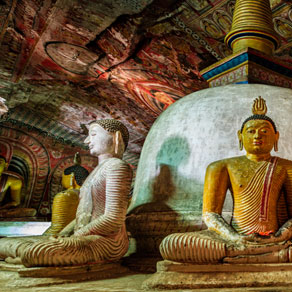
Treasure Island
Visiting: Tea Country, Galle and the southern beaches, Cultural Triangle, Yala National Park, Uda Walawe National Park
View DetailsStart planning your trip now
Speak to our travel experts and get a tailor-made, no obligation itinerary.
We only recommend hand-picked hotels we have sampled and savoured ourselves. And we know our destinations inside out so talk from experience to give personal insights into every element.
Our Recommended Accommodation In Jaffna
Jetwing Jaffna
The only modern hotel in Jaffna that can offer comfort and international standards. Superb location in the centre of town. Modern, eight-storey building, the interior design drawing on local Tamil influences. 55 deluxe rooms ha... View this hotel
Tailor-Made jaffna Holidays
THE YONDER DIFFERENCE
Off-the-shelf is off the menu at Yonder: from the moment you first get in touch you'll be in the hands of a senior executive who has spent years getting to know your destination first-hand. Other travel companies might talk a big game about expertise and customisation but, to blow our own trumpet for a minute, we're in a league of our own.

 USD
USD
